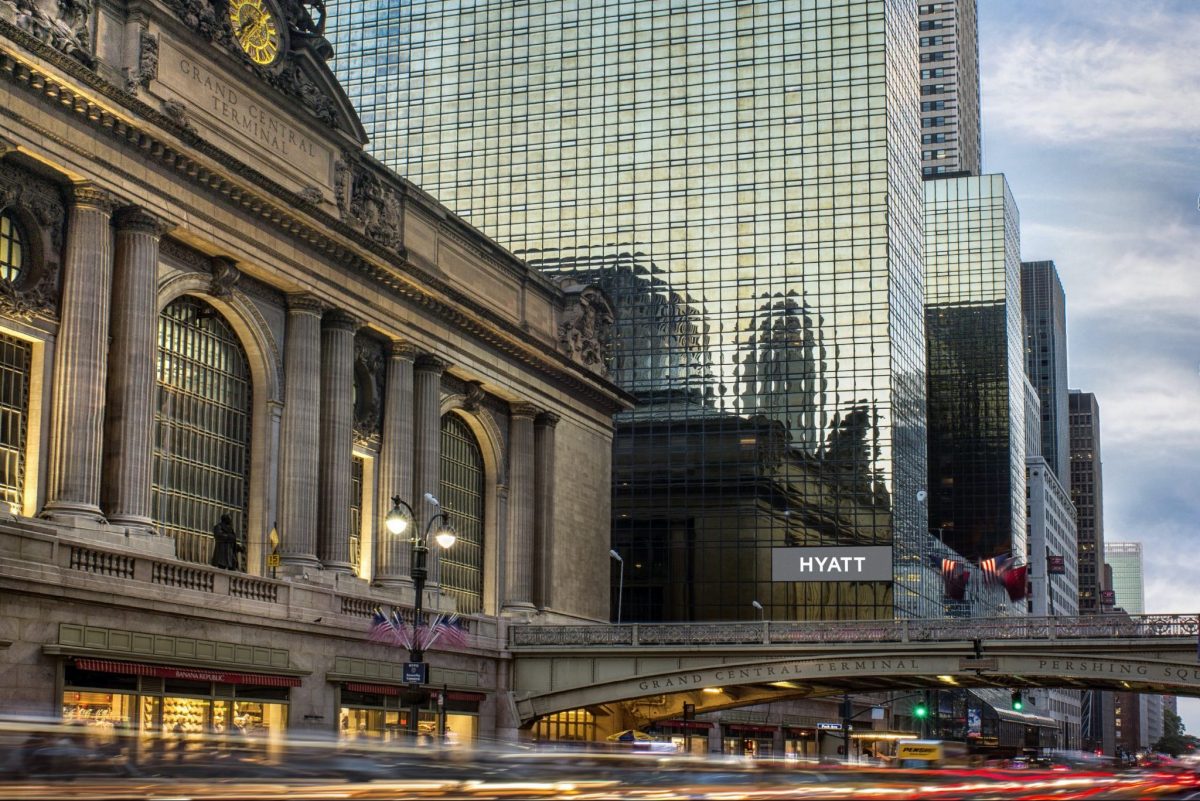Skift Take
Meanwhile, listings are down and revenue per room is up for short-term rentals.
At the Skift Global Forum last year, Airbnb CEO Brian Chesky predicted hotel rates would rise in New York City as a result of Local Law 18 – which Airbnb has called a “de facto ban” on short-term rentals.
The hotel industry, which supported the law, should see significant benefits from increased demand. How much?
About $380 million this year, according to a new report by real estate firm JLL. The report revealed that hotels in New York City could book an additional 2.2 million nights this year.
Local Law 18 went into effect in September 2023 and requires hosts to register with the city, imposes restrictions on rental durations, and mandates hosts to be present during stays. The law also aims to curb illegal hotels and short-term rentals.
Hotels Gain
That hotels stand to gain from 70% of Airbnb listings disappearing is not surprising. But there are other factors at play here.
- Nearly 62 million visitors came to the city in 2023, including 9.4 million international visitors. International visitor arrival is expected to surpass the 2019 peak by the end of 2024. According to New York City Tourism, the city is on track to welcome 64.5 million visitors this year.
- After a decade of historic growth, the hotel supply in New York City is expected to grow at a slower average annual rate of 1.6% over the next three years, JLL found. This means occupancy rates and revenue for existing hotel supply would rise.
- The JLL report also found that in 2023, hotel transaction volume in New York City surged to $3.3 billion, marking the highest total since 2016. There were 34 hotel transactions in 2023, marked by sale of luxury hotels including Park Lane Hotel and three different Hilton brands.
- Foreign capital, led by Asian and Middle Eastern investors, have become the primary acquirer of hotel assets after nearly three years of subdued activity. These investor groups are expected to maintain their interests, especially in the luxury segment.
Hotels in NYC Stand to Gain $380 Million in Revenue
Short-Term Rental Impact
The demand for hotel nights is supported by a drop in listings for rentals. Less than six months since Local Law 18 was passed, long-term rentals (of 30 days and longer) make up 90% of short-term rental supply in New York City. AirDNA data showed that the total available listings in January 2024 (both short- and mid-term, entire place as well as private and shared rooms) were 47% below January 2019.
That said, AirDNA data found that RevPAR has actually increased in New York for rentals since both 2019 and annually. RevPAR in January 2024 was $126.55, up 48% from January 2023 and a 90% hike from January 2019.
Impact of Local Law 18 on Short-Term Rental Supply in NYC
And New York City’s loss boosted two New Jersey cities, Newark and Jersey City. AirDNA data showed a decline of 46.1% in demand growth in December last year in New York City. Conversely, Jersey City and Newark experienced a surge in demand, with a growth rate of 53.7%.
And as Chesky said at the Skift Global Forum last year: “Next year, I predict hotel rates will be more expensive, and the reason why is they’re not going to be building 20,000 more hotel rooms, so it’s going to be more expensive to stay in New York, and I think that’s unfortunate because it’ll be a little less accessible.”
Dwell Newsletter
Get breaking news, analysis and data from the week’s most important stories about short-term rentals, vacation rentals, housing, and real estate.
Have a confidential tip for Skift? Get in touch
Tags: airbnb, local law 18, new york city, short-term rentals
Photo credit: The Hyatt Grand Central in Midtown Manhattan. Source: Hyatt Hyatt
